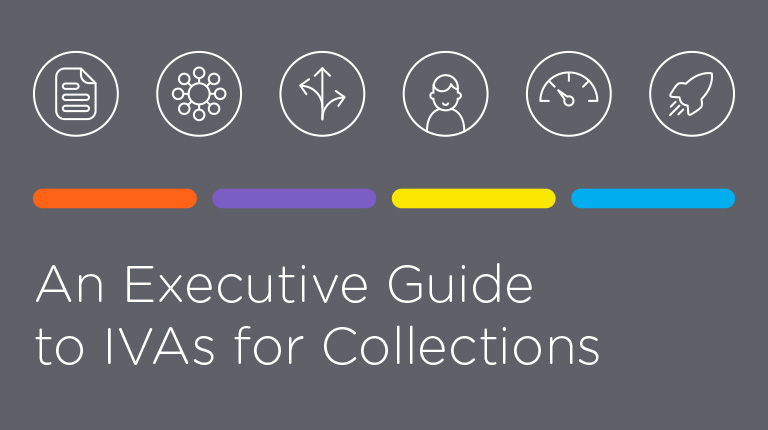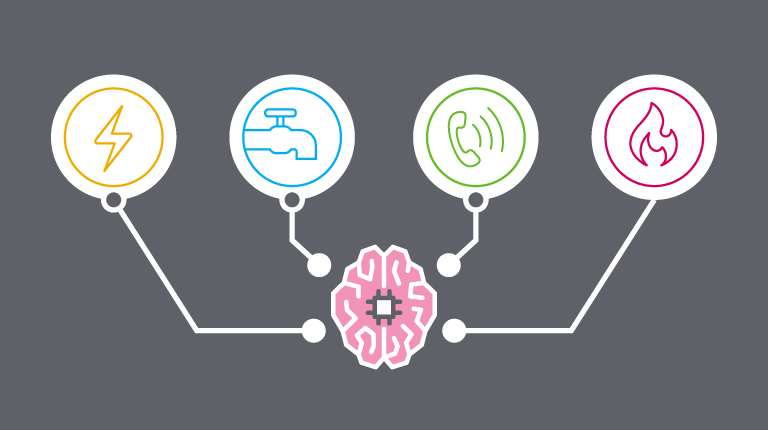A myriad of internal hurdles and immense pressure to do more with less, while still improving performance is a story all too familiar to Revenue Cycle Management (RCM) companies. Balancing the best interests and prioritizing the needs of employees, treating patients with empathy and kindness, and reducing the cost to collect debt, each require their own strategic initiatives to make progress. RCMs have historically battled these cumbersome challenges without support, relying on internal innovation and their staff. In addition, these decade old challenges have also been compounded due to the COVID-19 pandemic, which has heightened the effect of and increased stress levels for RCM companies.
Without a unified solution for transforming the way RCMs interact with patients, retain and develop their own employees, and succeed operationally, these challenges seem daunting. Being employee-centric and customer-centric simultaneously is a herculean task. However, Conversational AI and automation is changing all of this and has the potential to create unprecedented levels of transformation and efficiency for RCMs in all of these areas.
Conversational AI is made for RCMs
So, how can RCMs implement a strategy that improves agent experience, ensures patients are met with empathetic and kind experiences, and reduces the cost to collect? The answer lies with transformative technology–a Virtual Collection Agent (VCA).
Virtual Collection Agents, powered by a seamless blend of Conversational AI and human intelligence, have the capability to increase early-out collections while improving the experience of agents and patients alike. A VCA has access to all the backend data sources and systems, is always empathetic and understanding to patients, and is immune to crises, ultimately behaving like a RCM’s best agent at scale. For these reasons and more, implementing a Conversational AI solution in an RCM environment can bring value from many different angles.
Regulation and security are always a top concern for RCMs. This typically involves significant training and monitoring of human agents who interact with patients directly. Compliance is expensive and it’s easy to make errors without the right technology. With a Conversational AI-based VCA, the patient interaction is structured, follows defined dialogue flows, and always adheres to compliance regulations and processes, allowing RCMs to rest assured that their regulatory requirements are in good hands. This is all the more essential as RCM companies have shifted to work from home models to adhere to COVID-19 restrictions.
There’s a Solution for Reducing the Cost to Collect
In addition to the above mentioned benefits, a VCA also reduces the cost to collect by automating the payment arrangement and revenue recovery process. By doing so, a VCA lessens or even eliminates live agent minutes spent on transactional or data driven tasks. And, the end-to-end automation removes a burden on live agents and provides scalability in an environment all too familiar with unpredictable spikes and decreases in volume. With this type of scalability, RCMs no longer have the pressure and cost associated with quickly hiring and training live agents. VCA also solves for many of the operational inefficiencies, like high billable days, which can be stressful and burdensome to human agents, but can ultimately result in millions of dollars spent across the industry as RCMs struggle to collect aged accounts or bad debt.
With fewer dollars coming into hospitals due to a reduction in elective procedures as a direct result of COVID-19, VCAs remove the guesswork of scaling up or down. In an environment where cost cutting is common, implementing a transformational technology that will deliver an increase in top live revenue while reducing costs is not only a nice to have, but a requirement.
Burnout is Plaguing Healthcare, but Conversational AI can help
Revenue Cycle Management is a labor intensive industry, and the livelihood, success, and happiness of agents is of the utmost importance. But how can automation improve the productivity of agents, while simultaneously improving the overall patient experience? It’s simple. A Conversational AI solution has the capability to automate the mundane, data driven tasks that don’t require human reasoning. This allows live agents to upskill and specialize, which in turn makes them feel valued and provides relief from the burnout that healthcare professionals are all too familiar with.
People are the most important aspect of RCM companies. It’s impossible to function through the day-to-day without the employees that keep the lights on and perform mission critical tasks. Implementing a VCA allows human agents to refocus, improving productivity and overall agent retention. By leveraging the power of VCAs, RCMs have the capability to reassign skilled workers to tasks that have historically been hard to fill. It’s a win-win as patients and agents are both satisfied while organizations recover more revenue and improve from an operational perspective.
How will Patients React?
According to a 2018 consumer sentiment survey conducted by Interactions and The Harris Poll,1 in 4 US consumers prefer interacting with a virtual agent (instead of human agents) when dealing with uncomfortable or embarrassing financial information, and healthcare bills are no exception. In addition, 70% are content to not interact with human agents during financial circumstances. While treating patients with kindness and care, VCAs are able to provide an additional layer of comfort to the self-pay process for these patients. With the ability to quickly make payments, get updates on their balance, or make changes to their account, your patients will be able to take care of things both quickly and efficiently, and also on their own time.
The disruptors and innovators in any industry are ultimately the most successful. Revenue Cycle Management companies are no exception and the industry is on the brink of their own digital transformation journey. Implementing a Virtual Collection Agent powered by Conversational AI can help build a strong foundation for the business and patient needs of both today and tomorrow.





